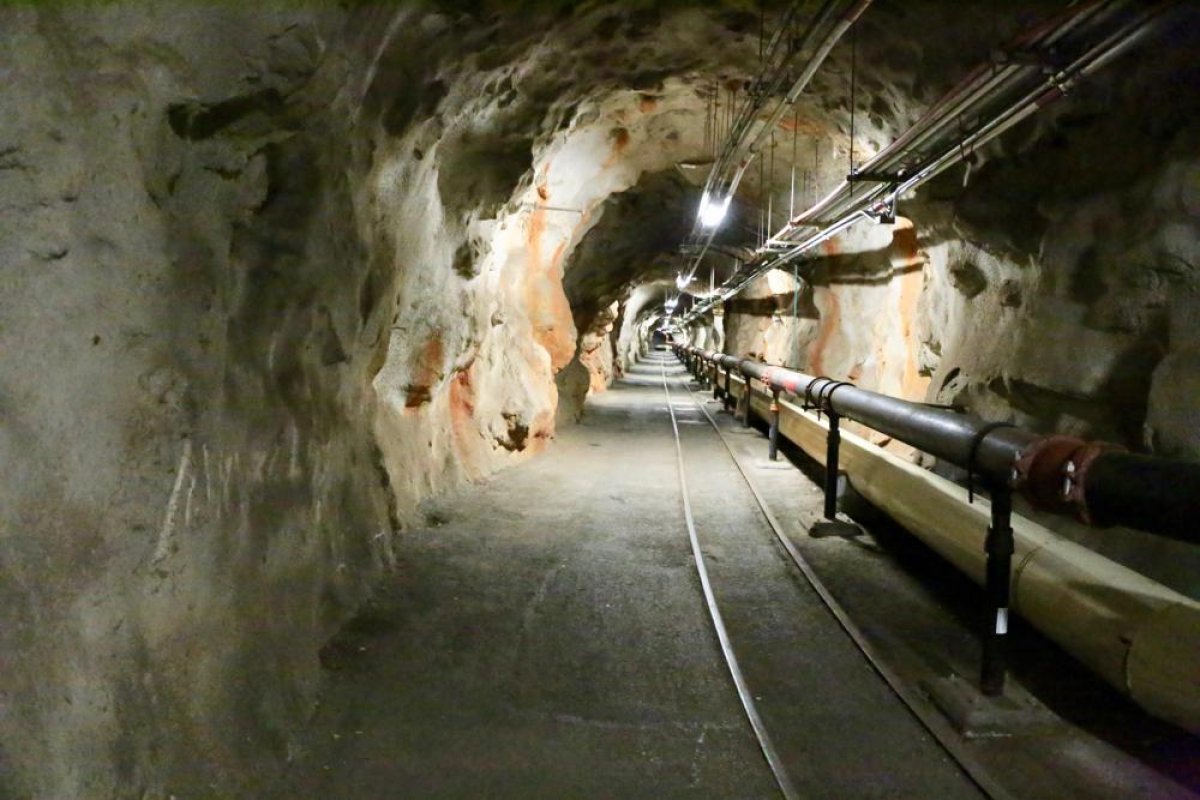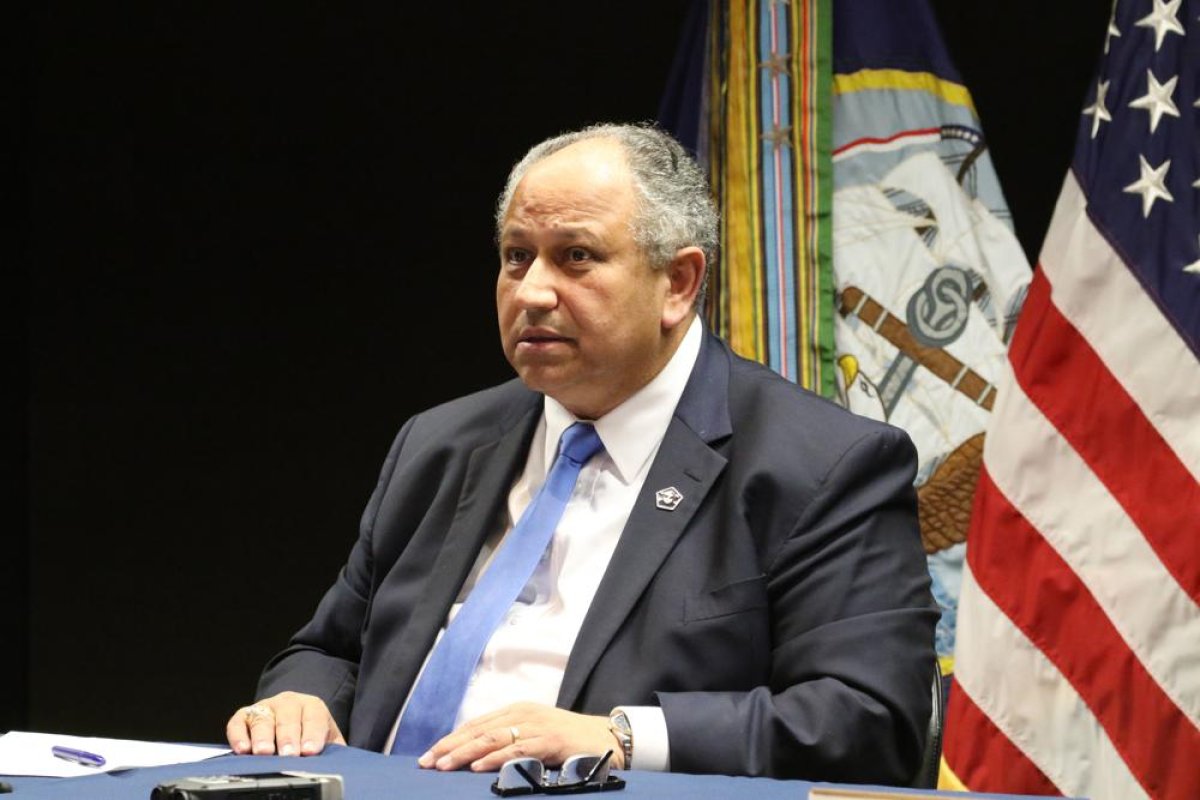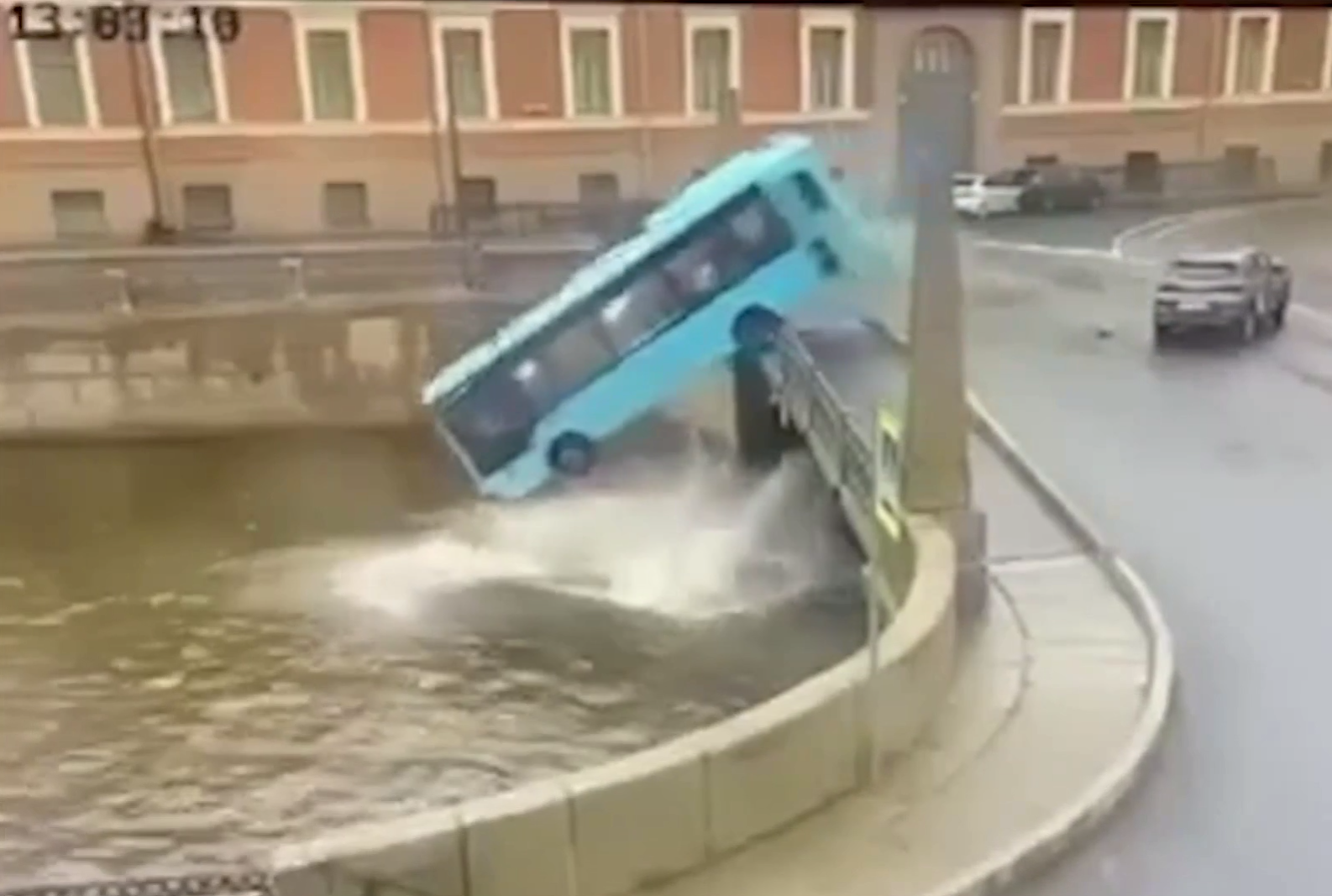The U.S. Navy has shut down a massive fuel complex located above one of Hawaii's major aquifers after detecting petroleum in a water sample.
Nearly 1,000 had complained of a fuel odor or side effects like vomiting and stomach cramps after ingesting water provided by the aquifer, which supplies nearly 20 percent of Honolulu's drinking water.
Several military officials traveled to Pearl Harbor to address the issue and offer an apology to affected residents. Navy Secretary Carlos Del Toro described the fuel leak as a "horrible, horrible tragedy," while Chief of Naval Operations Adm. Mike Gilday said that the situation was "completely and totally unacceptable."
The Navy announced in a statement Friday that testing of a well near the fuel facility detected petroleum in the water. The well had been isolated since the start of the week, the Navy said, but the discovery prompted both Hawaii Governor David Ige and the state Department of Health to ask the Navy to immediately shut down the Red Hill Bulk Fuel Storage Facility.
"Test results confirming contamination of drinking water at Joint Base Pearl Harbor-Hickam show that the Navy is not effectively operating the World War II-era facility," Ige and the state's congressional delegation said on Twitter. "We are calling for the Navy to immediately suspend operations at Red Hill while they confront and remedy this crisis."
Ingesting, inhaling or other exposure to petroleum can result in vomiting, diarrhea, headaches, and confusion. All service members and civilian employees near the Joint Base Pearl Harbor-Hickam, which was affected by the leaks, were offered alternative housing as officials work to solve the issue.

Del Toro said officials were getting close to determining the cause of the problem and that when the investigation is completed and reviewed, the Navy will adopt water safety precautions.
"This will allow us to implement new safety actions before resuming operations," Del Toro said.
When asked if the Navy is considering permanently shutting down the fuel tank farm, Del Toro said all possibilities are being explored.
"We're looking at some very serious options here in the very near future," he said.
Fuel from the tanks is used to power many U.S. military ships and planes that patrol the Pacific Ocean, but Del Toro said the cutoff's impact on military operations would "have a very minimal effect, if any, at all right now."
"I don't want to get into topics with conversations with regards to how long we can continue to do this for national security reasons, but there's really no minimum operation to our fleet's activities or activities impacting the Air Force or the Army or the Marine Corps for any near term at all," Del Toro said.
Rear Admiral Blake Converse, deputy commander of the U.S. Pacific Fleet, told reporters that the use of the tank farm was suspended on Nov. 27.
"I know there are concerns that we have not been transparent with the results of our testing and our procedures," Del Toro said. "You have my commitment and promise that the information that we provide is the most accurate information that we have available."
The Navy's water system serves about 93,000 people. Nearly 1,000 military households complained about their tap water smelling like fuel or of ailments like stomach cramps and vomiting.
The Navy said it would flush clean water through the distribution system to clear residual petroleum products from the water. The process, along with testing, could take up to 10 days to make sure the water meets Environmental Protection Agency drinking standards.
The tap water problems have afflicted one of the military's most important bases, home to submarines, ships and the commander of U.S. forces in the Indo-Pacific region. They also threaten to jeopardize one of Honolulu's most important aquifers and water sources.
The Associated Press contributed to this report.

Uncommon Knowledge
Newsweek is committed to challenging conventional wisdom and finding connections in the search for common ground.
Newsweek is committed to challenging conventional wisdom and finding connections in the search for common ground.
About the writer
Zoe Strozewski is a Newsweek reporter based in New Jersey. Her focus is reporting on U.S. and global politics. Zoe ... Read more
To read how Newsweek uses AI as a newsroom tool, Click here.






